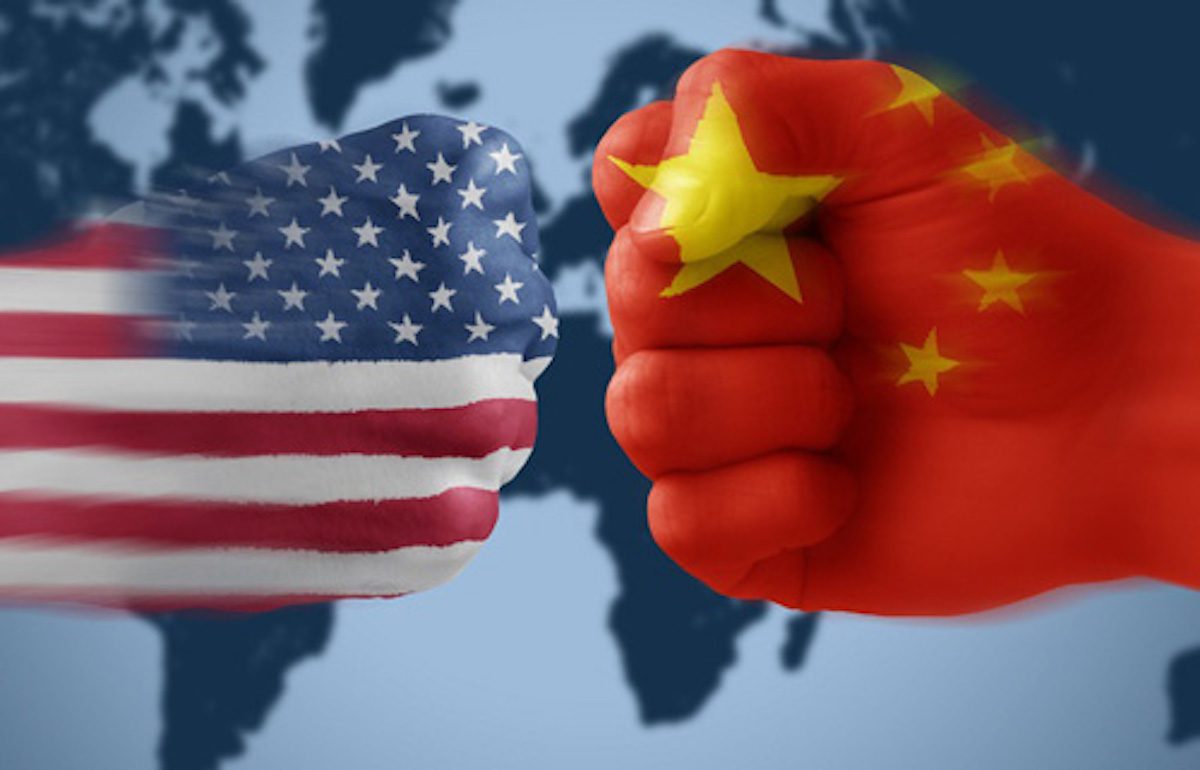Global Courant 2023-04-27 00:36:33
More than a quarter of US companies prioritize other countries over China as sentiment about China-US relations grows more pessimistic, says the American Chamber of Commerce in China (AmCham China).
About 27% of AmCham China members surveyed consider countries other than China when making their investment decisions, mainly due to concerns about an uncertain policy environment in China, according to a survey conducted April 18-20 and published in the 2023 American Business in China White Paper on Wednesday.
The figure was just 6% in a previous survey, conducted last November and published in the China Business Climate Survey Report 2023 (BCS) last month.
In the latest survey, about 87% of US companies expressed pessimism about the outlook for the relationship between the world’s two largest economies. In the 2023 BCS report, it was 73%.
The percentage of respondents optimistic about China-US relations fell from 8% to 2% over the same period. The remaining 11% are neutral on this.
Colm Rafferty, chairman of AmCham China, said the latest research was conducted against the backdrop of a tense bilateral relationship between the US and China that continues to fuel uncertainty in business decision-making while China is no longer the top investment destination it once was. .
Rafferty said members reported a slightly more pessimistic financial outlook for 2023 compared to previous years.
In the white paper, AmCham China says China’s refusal to speak out against Russia’s 2022 invasion of Ukraine has further exacerbated tensions with the US and other Western countries, as well as several of its neighbors.
“The Chinese government has repeated Russian propaganda and disinformation about the war, opposed economic sanctions against Russia, and abstained from voting or sided with Russia in United Nations votes on the war in Ukraine,” it read. “These decisions have consistently put China at odds with much of the US and many Western countries, which have threatened sanctions if China provides military or financial aid to Russia.”
It says Beijing’s stance on the war in Ukraine without a peaceful resolution will continue to worry foreign companies that have invested in China.
According to an Global Courant study of international trade data, U.S. imports from Mexico, Vietnam, India and other “friends-shoring” locations depend on imports of Chinese components.
James Crabtree, executive director of the Asian branch of the International Institute for Strategic Studies, says in a tweet that because the West’s supply chains around the world will continue to need Chinese components, their fundamental vulnerability will remain.
Crabtree also says that economic decoupling between the West and China will make Southeast Asian countries more economically dependent on China.
Top business challenge
Political tensions between China and the US increased after a Chinese “spy balloon” was spotted in North American airspace in late January. The situation was exacerbated by the cancellation of US Secretary of State Antony Blinken’s trip to China, new sanctions against Chinese companies and a historic meeting between Taiwanese President Tsai Ing-wen and US House Speaker Kevin McCarthy in California on April 5.
AmCham China says rising tensions between the two powers remain a key business challenge cited by its members. It says three-quarters of companies are directly affected by the changing relationship between the US and China, while 46% of members expect the relationship to deteriorate in 2023, up from 24% in 2022.
In addition, it says, 38% of member companies felt foreign companies were treated unfairly compared to domestic companies in China last year, compared to 33% who felt so in 2021. These companies said regulatory enforcement topped the list of unfair treatment areas was , with licensing and market access and government financial support/subsidies in second place.
Made in China. Cardboard boxes with text made in China and Chinese flag on a roller conveyor. Photo: 3D illustration
“Nearly half of our members felt ‘less welcome’ in China, with more than a third of survey participants citing unfair treatment towards foreign companies by government policies and subsequent enforcement actions,” it says. “Unfortunately, this has also led to the second year of increasing uncertainty among our members about the Chinese government’s intentions to open up the Chinese market to foreign investment.”
According to the 2023 BCS report, last November, 24% of respondents said they were considering moving or already moving all their manufacturing or purchasing outside of China, while 74% said they were not considering it. After the Chinese government ended its zero-Covid policy in December, 23% of respondents still acknowledged their intention to leave China in mid-April.
The BCS Report 2022 said in March last year that only 14% of members wanted to leave China, while 83% said they would stay. China’s foreign ministry spokesman at the time, Zhao Lijian, said foreign investors had expressed confidence in China’s development.
When the 2023 BCS report was released last month, the State Department did not comment on it, waiting to comment on the separate study conducted by AmCham South China. The survey shows that more than 90% of participating companies have chosen China as one of their top investment destinations and 75% of companies plan to invest in China again in 2023.
“China remains a popular destination for foreign investment because it has a huge market and mature industrial and supply chain networks,” said Mao Ning, a foreign ministry spokesman. said on March 1st. “However the international landscape changes, we will not waver in our determination to open up further at a high level and our determination to share development opportunities with the rest of the world.”
China’s foreign direct investment (FDI) rose 4.9% in the first quarter to 408.45 billion yuan ($59.2 billion) from a year ago, the Commerce Ministry said on April 20. of the country’s FDI was just 0.5% in the first quarter, significantly lower than the 32% in the same period last year.
US investment restrictions
Next week, US President Joe Biden will sign an executive order banning US companies and funds from investing in Chinese microchips, artificial intelligence, quantum computing, biotechnology, and clean energy projects and companies.
The investment restrictions require U.S. companies to notify the government of new investments in China’s high-tech sectors and prohibit some of these deals. Biden will try to announce them before the G7 summit on May 19-21 and ask US allies for support.
AmCham China says various U.S. export control rules are ineffective, as many items requiring U.S. dual-use export licenses can easily be exported from non-U.S. countries without licenses.
“The U.S. government should work with other governments to impose multilateral controls, rather than imposing unilateral U.S. controls that are ineffective in achieving national security and foreign policy goals,” the chamber says. “If controls remain one-sided, it should reconsider the effectiveness of such controls and remove those that fail to meet U.S. policy objectives.”
AmCham proposes that government and industry representatives from both countries establish a means to openly collaborate to address export control concerns and set baselines that would enhance Chinese companies’ ability to purchase US-controlled raw materials and would enable American and Chinese companies to co-develop technology for the benefit of both countries.
Read: US investment restrictions on technology companies enrage China
Follow Jeff Pao on Twitter at @jeffpao3
Similar:
Loading…








